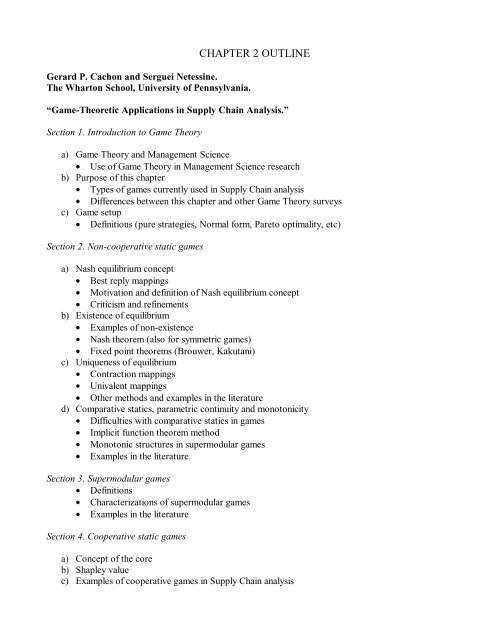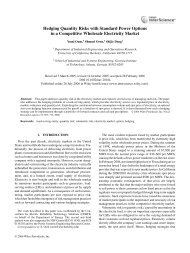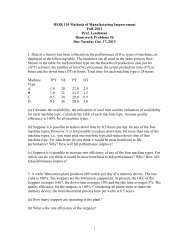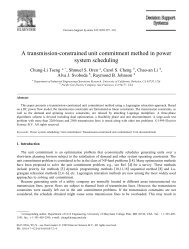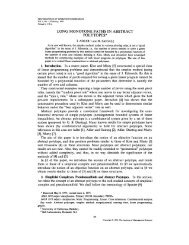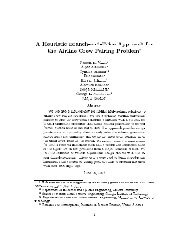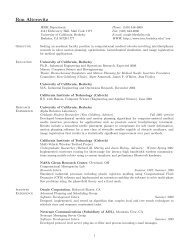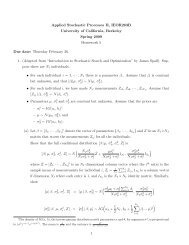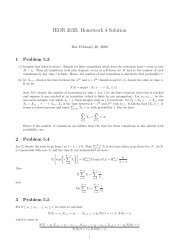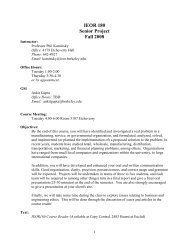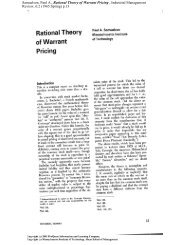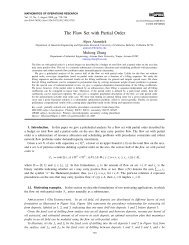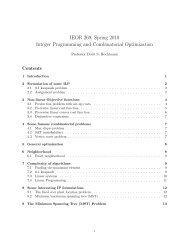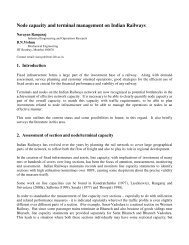CHAPTER 2 OUTLINE
CHAPTER 2 OUTLINE
CHAPTER 2 OUTLINE
Create successful ePaper yourself
Turn your PDF publications into a flip-book with our unique Google optimized e-Paper software.
Gerard P. Cachon and Serguei Netessine.<br />
The Wharton School, University of Pennsylvania.<br />
<strong>CHAPTER</strong> 2 <strong>OUTLINE</strong><br />
“Game-Theoretic Applications in Supply Chain Analysis.”<br />
Section 1. Introduction to Game Theory<br />
a) Game Theory and Management Science<br />
• Use of Game Theory in Management Science research<br />
b) Purpose of this chapter<br />
• Types of games currently used in Supply Chain analysis<br />
• Differences between this chapter and other Game Theory surveys<br />
c) Game setup<br />
• Definitions (pure strategies, Normal form, Pareto optimality, etc)<br />
Section 2. Non-cooperative static games<br />
a) Nash equilibrium concept<br />
• Best reply mappings<br />
• Motivation and definition of Nash equilibrium concept<br />
• Criticism and refinements<br />
b) Existence of equilibrium<br />
• Examples of non-existence<br />
• Nash theorem (also for symmetric games)<br />
• Fixed point theorems (Brouwer, Kakutani)<br />
c) Uniqueness of equilibrium<br />
• Contraction mappings<br />
• Univalent mappings<br />
• Other methods and examples in the literature<br />
d) Comparative statics, parametric continuity and monotonicity<br />
• Difficulties with comparative statics in games<br />
• Implicit function theorem method<br />
• Monotonic structures in supermodular games<br />
• Examples in the literature.<br />
Section 3. Supermodular games<br />
• Definitions<br />
• Characterizations of supermodular games<br />
• Examples in the literature<br />
Section 4. Cooperative static games<br />
a) Concept of the core<br />
b) Shapley value<br />
c) Examples of cooperative games in Supply Chain analysis
Section 5. Dynamic games<br />
a) Subgame perfection<br />
b) Stackelberg equilibrium concept<br />
c) Multi-period games<br />
• Stochastic dynamic games<br />
• Myopic solutions<br />
d) Differential games and optimal control theory<br />
e) Examples in the literature<br />
Section 6. Other games and potential applications of Game Theory<br />
a) Games of incomplete and asymmetric information<br />
b) Bargaining and auctions<br />
c) Bayesian games and learning<br />
d) Opportunities for other application of Game Theory


